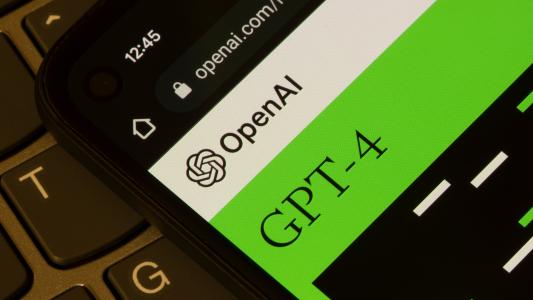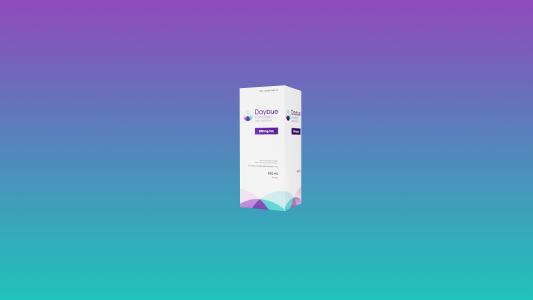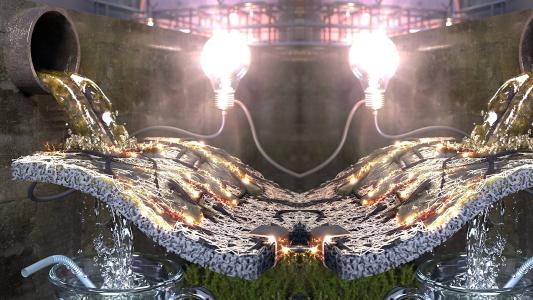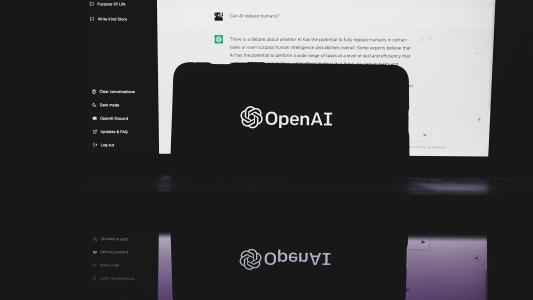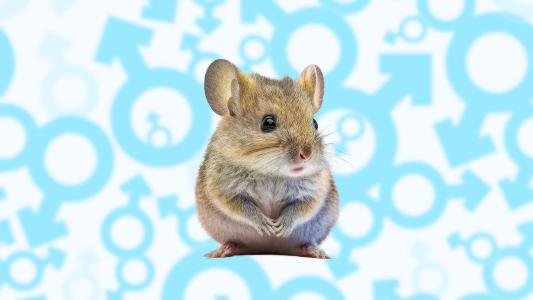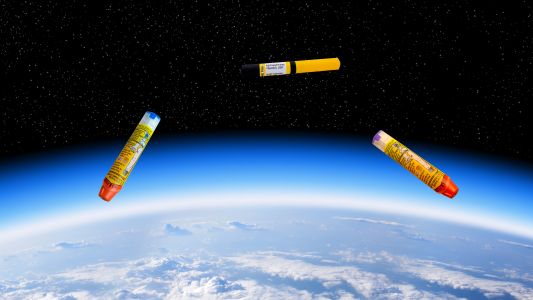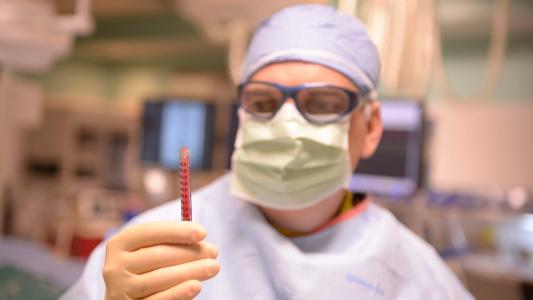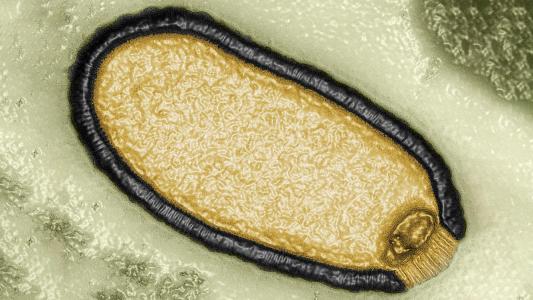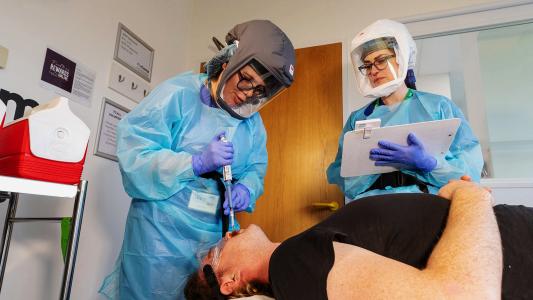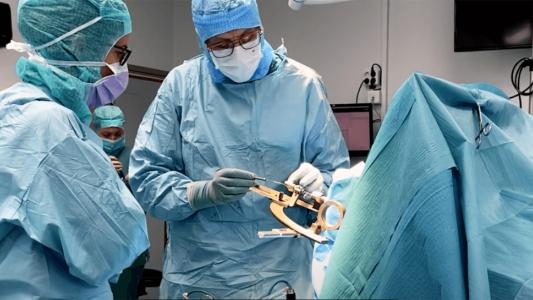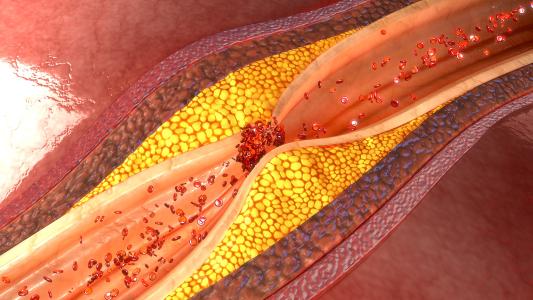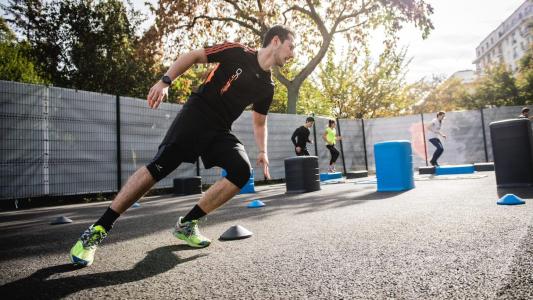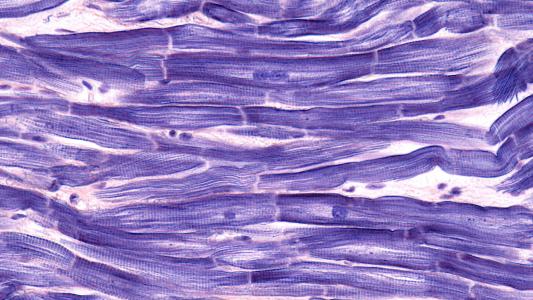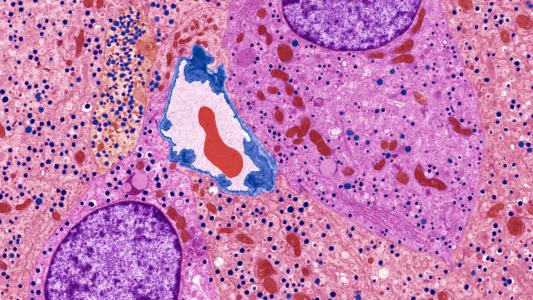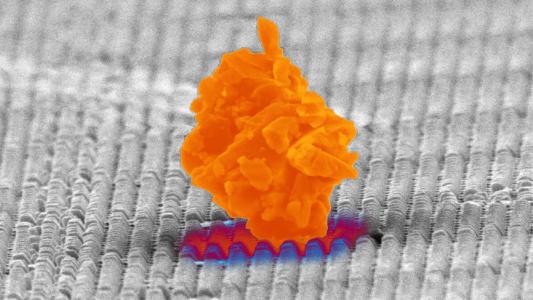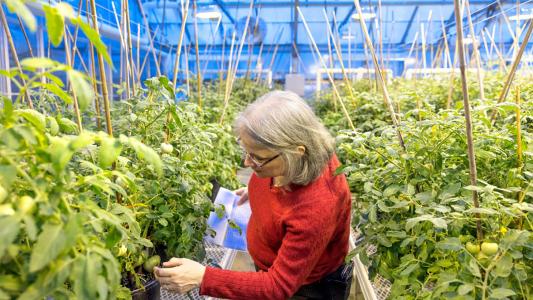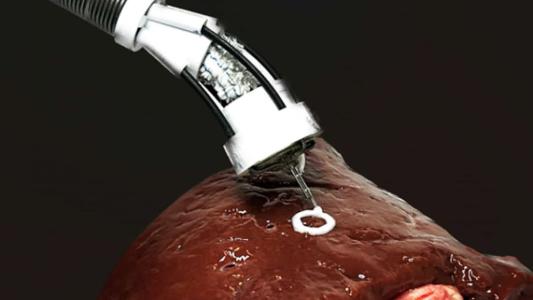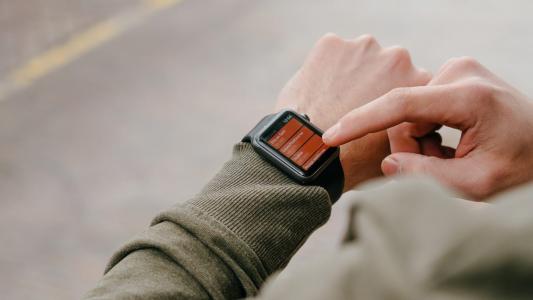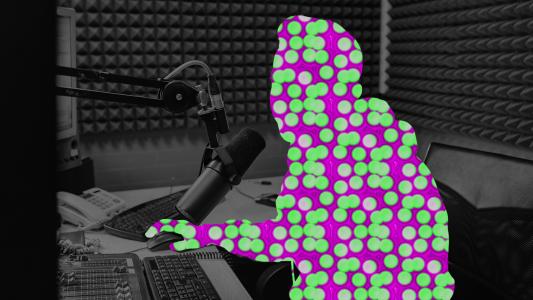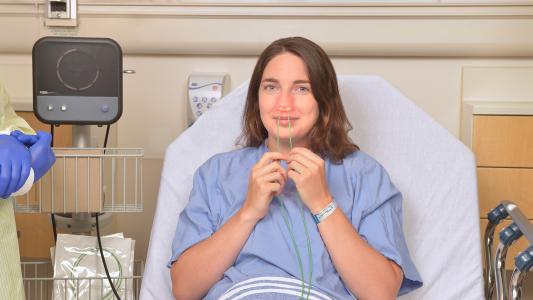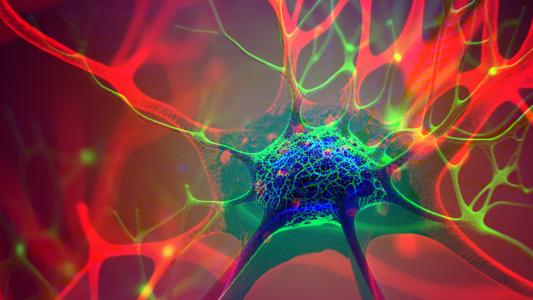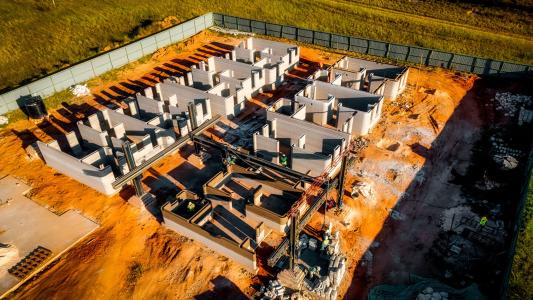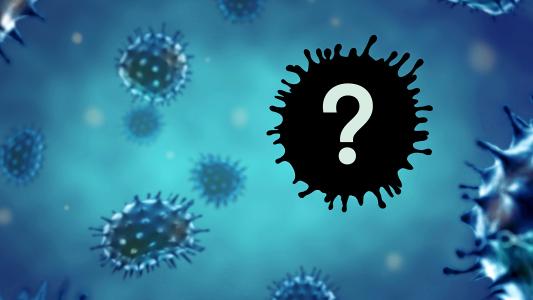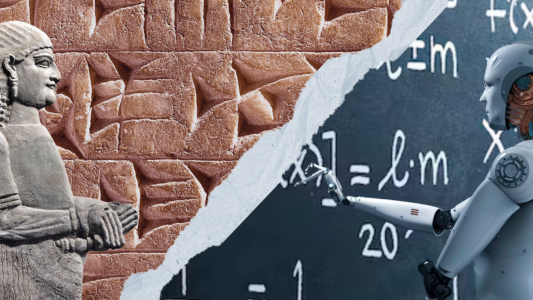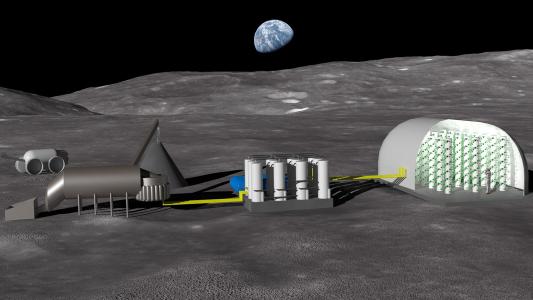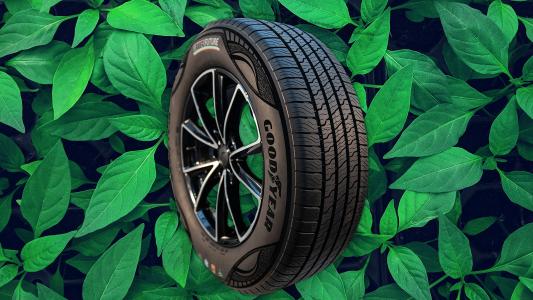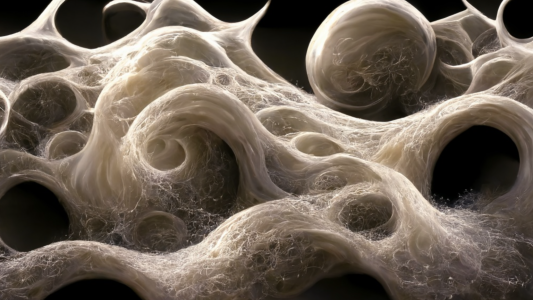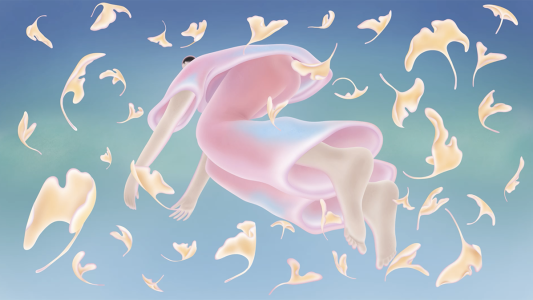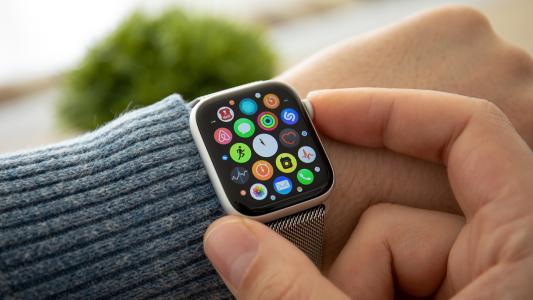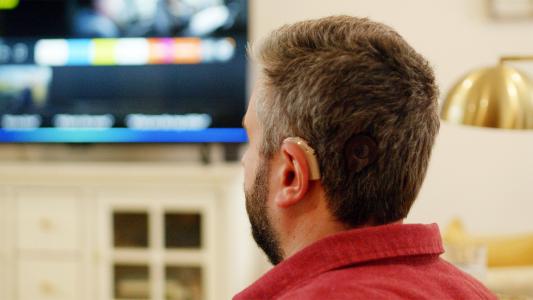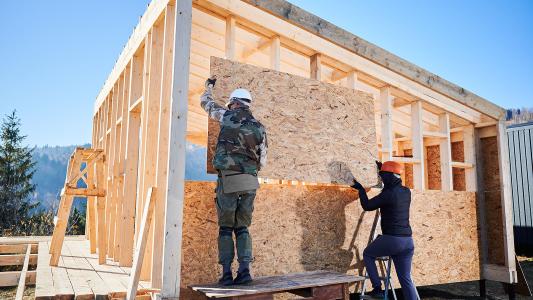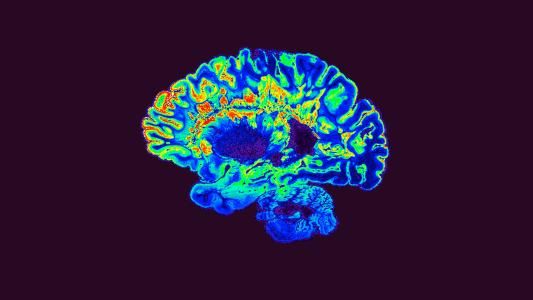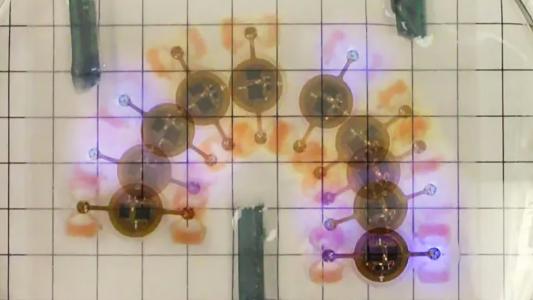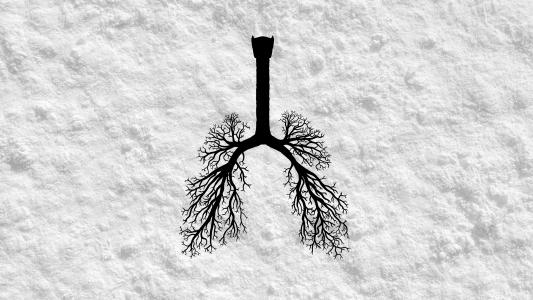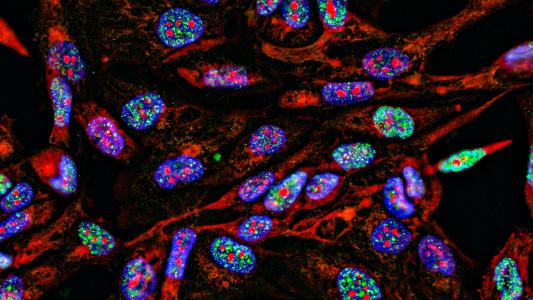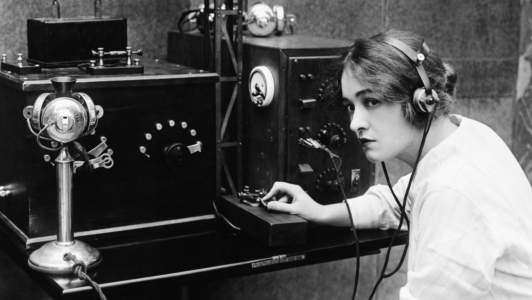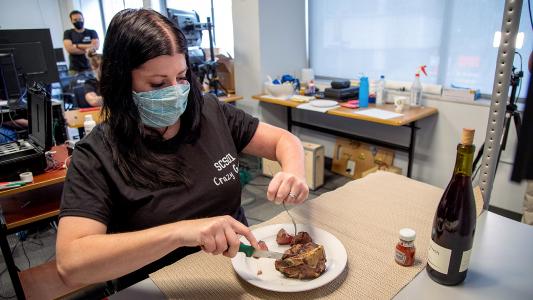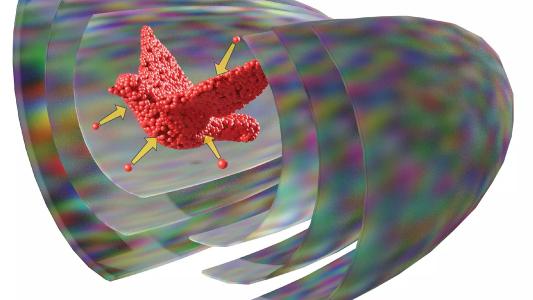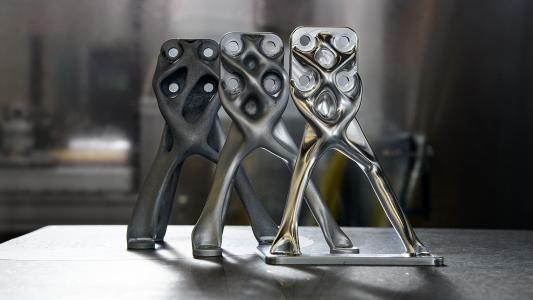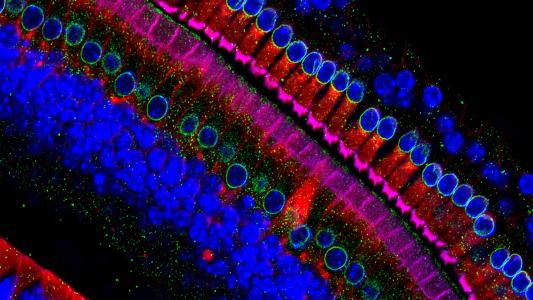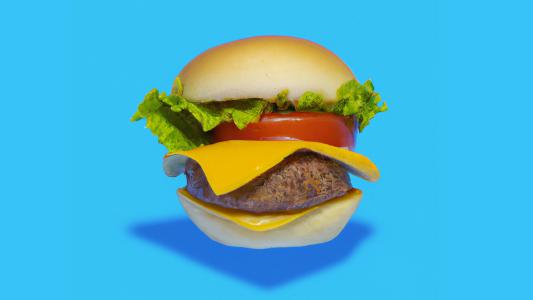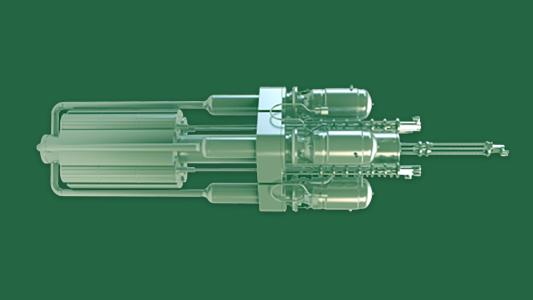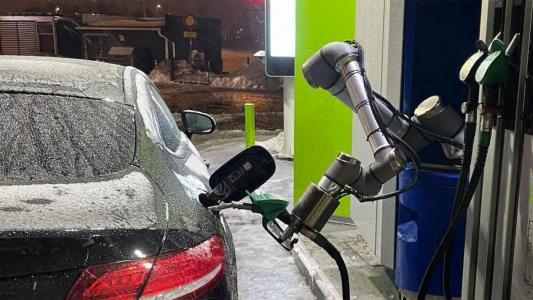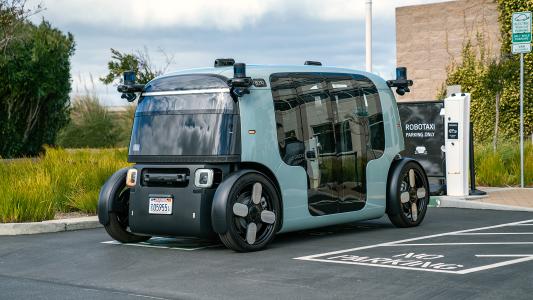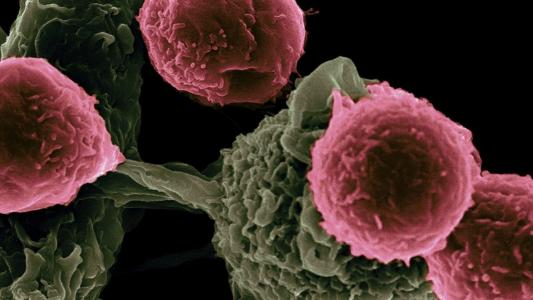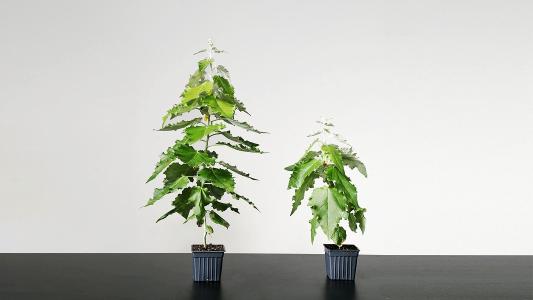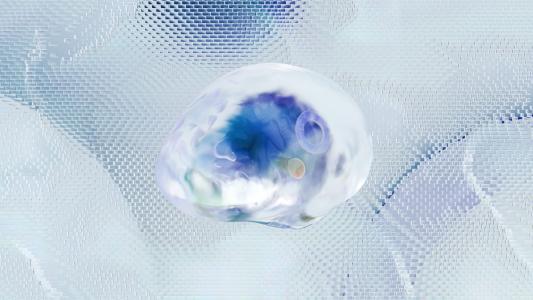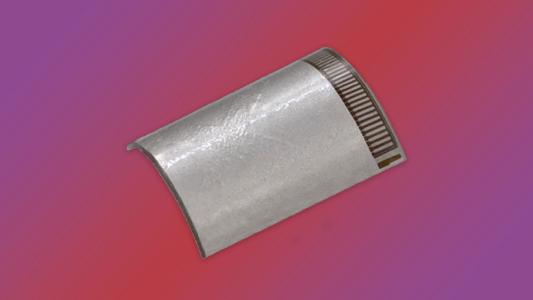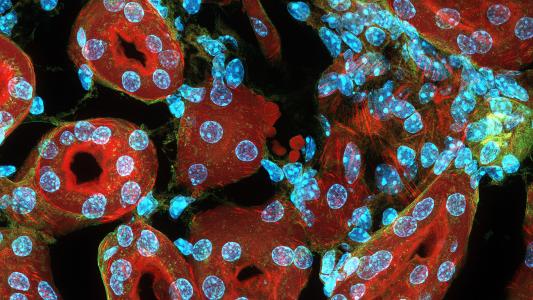GPT-4 is surprisingly good at explaining jokes
OpenAI's latest language model can grasp visual jokes, too.
This easy fix could eliminate harmful chemical exhaust from home heaters
Retrofitting gas heaters with this catalyst could slash their environmental impact.
New AI can “reimagine” your pictures in infinite ways
Stability AI has launched Stable Diffusion Reimagine, an AI that uses uploaded images as inspiration for new creations.
How Stripe is using GPT-4 to fight fraud
Stripe has incorporated OpenAI’s large language model GPT-4 into their business.
A search engine researcher explains the promise and peril of letting AI search the web for you
AI responds to questions but doesn’t actually know anything and is prone to making things up. Should you trust is with your internet search?
How “InstructGPT” lobotomizes the insanity of raw GPT
OpenAI has created a version of GPT, called "InstructGPT," that cuts down on the AI’s bizarre and irrational responses.
First ever therapy for rare genetic disorder now approved
The FDA has approved the first drug for Rett syndrome, a genetic neurodevelopmental disorder, which disproportionately affects women and girls.
Microsoft unveils AI Copilot for its 365 apps
Microsoft has just unveiled Copilot, a new AI-based tool for its Microsoft 365 apps, including Word, Excel, and PowerPoint.
AI isn’t close to becoming sentient, we just think it is
To what extent will our psychological vulnerabilities shape our interactions with emerging technologies? AI will be the test.
General Motors is putting ChatGPT into its vehicles
General Motors is developing a new voice assistant that will give drivers access to the hugely popular ChatGPT while they're on the road.
Making electricity from wastewater
Researchers have developed a “sandwich-like” membrane that removes pollutants while generating power.
You can run this text-generating AI on your own devices, no giant servers needed
By fine-tuning a large language model, Stanford researchers have created a text-generating AI you can run for a fraction of the price.
Pfizer’s nasal spray for migraines is heading to pharmacies
The FDA has approved Pfizer’s zavegepant, a nasal spray for migraines that can ease pain in as few as 15 minutes.
7 creative ways people are already using GPT-4
Users are already demonstrating the wide array of uses the new AI tool may have.
Google rolls out AI writing assistant to Gmail and Docs
Google is incorporating generative AI into its Workspace products, starting with an AI writing assistant for Gmail and Docs.
Psychedelics open a new window on the mechanisms of perception
Some neuroscientists think psychedelics and the hallucinations they induce could help reveal how we generate our perceptions of the world.
OpenAI just launched GPT-4 — and you may already be using it
Just four months after releasing ChatGPT, OpenAI has already upgraded its hugely popular chatbot with a new AI model.
First healthy mice with two dads — and no moms — born in Japan
For the first time, scientists have created healthy, fertile mouse pups using only the DNA of two adult males.
Here’s how your sleep affects your immune system
Researchers found that patients who slept less than six hours a night were 27% more likely to have an infection.
New material traps CO2 — and turns it into baking soda
A new material for direct air capture systems turns trapped carbon into baking soda when introduced to seawater.
The ocean “twilight zone” could store vast amounts of carbon captured from the atmosphere
There may be ways to enhance natural processes so the ocean pulls more carbon out of the atmosphere to help slow climate change.
Canadian students discover EpiPens will turn toxic in space
Canadian students launched EpiPen solution into suborbital space, and what came back was no longer life-saving medicine.
A single injection of stem cells slashes risk of heart attack or stroke by 58%
An injection of stem cells reduced the risk of heart attack or stroke by 58% in a trial of people with heart failure.
Does online opioid treatment work?
A sudden shift to virtual health care has increased access — and possibly outcomes — for patients with opioid use disorder.
New warning system will make airports safer
The FAA has installed a new warning system to prevent planes from landing on taxiways at 43 major airports.
“Zombie virus” revived after 48,500 years in permafrost
A newly discovered “zombie virus” was still able to infect hosts more than 48,500 years after it was trapped in Siberian permafrost.
Volunteers were purposefully infected with COVID-19. Was it worth it?
It has been a year since the first COVID human challenge data was published. What did we learn, and can HCTs prepare us for the future?
“Digital detoxes” don’t work. Try these 4 skills instead
Digital distractions have become a ubiquitous part of work and life. But these distractions begin with emotional discomfort.
Watch: Scientists breed flame-resistant cotton, without added chemicals
USDA researchers have developed self-extinguishing cotton lines, potentially cutting down on the need for flame retardants in the future.
New drug could extend lives of people with deadly bone cancer
A new drug might extend the lives of people with bone cancer without subjecting them to painful or unpleasant treatments.
Scientists inject stem cells into the brain of Parkinson’s patient
A new stem cell therapy for Parkinson’s disease has just been administered to the brain of a person for the first time.
Self-sufficient “microgrids” could save you from power grid emergencies
Centralized power systems rely on large power plants and transmission grids, but microgrids are self-sufficient.
New kind of pill cut “bad” cholesterol up to 60% in clinical trial
In a phase 2 trial, a daily oral medication reduced LDL cholesterol levels by up to 60%.
LA’s on-demand vans charge just $1 per ride
Los Angeles has launched Metro Micro, an on-demand public transportation service that charges just $1 per ride.
Exercise is even more effective than counselling or medication for depression
A recent study showed exercise is an effective way to treat mental health issues – and can be more effective than medication or counselling.
Scientists treated heart attacks in mice — before they happened
By toggling an important heart gene, scientists have treated mice for a heart attack preemptively.
Tesla switches to motors without rare earth elements
Tesla’s future powertrains won’t contain rare earth elements, which are mined primarily in China using environmentally destructive methods.
Space travel will radically change human psychology and spirituality
We are living in a period of living and traveling in space. If we continue on this trajectory, we will develop new spiritual views.
New transplant technique cures type 1 diabetes in monkeys
Massachusetts General researchers have developed a new form of transplantation that cured type 1 diabetes in monkeys.
Starlink: SpaceX’s new internet service could be a gamechanger in Africa
SpaceX’s Starlink service is slowly arriving in Africa, starting with Nigeria and Rwanda. It could be a game-changer.
New anti-dust tech could solve this major problem for NASA
A new anti-dust technology could extend the lives of space rovers, improve the efficiency of solar panels, and more.
Tirzepatide: A novel obesity drug ushers in a new era of weight loss — because this one works
Patients who received tirzepatide in a recent clinical study lost more than 20% of their body weight (52 pounds, or 23.6 kg).
Pest-resistant tomatoes finally available after 30-year wait
New lines of naturally pest-resistant tomatoes could help end farmers’ reliance on pesticides to protect their crops.
New 3D bioprinter could repair organs inside the human body
A snake-like soft robot designed to 3D bioprint tissues inside patients’ bodies might one day replace invasive implantation surgeries.
Batteries not included: How your own body could power wearables
Batteries are the weak link for wearable and implantable devices. But what if you could harvest energy from the heat, sweat or vibrations of the wearer?
AI is now DJing radio stations
GPT-3, the OpenAI tech behind the hugely popular AI chatbot, ChatGPT, is now being used to automate radio DJing.
This incredibly life-like robot hand can be made for just $2,800
Low-cost robots that perfectly mimic parts of the human body foreshadow a future in which humanoid robots do all the work people don't want.
Could 3D printing help solve the US housing crisis?
3D printing could help solve the nation’s housing crisis, as it's cheaper, faster, and more sustainable than conventional construction methods.
Cyborg fish grow electrodes in their brains and fins
A gel that turns into an electrode once inside the body might end the need for invasive implantation surgeries.
How to pull carbon dioxide out of seawater
Researchers have found an effective new method for removing carbon dioxide from salt water in the ocean.
Lasers can help prevent surgical site infections in hospitals
Canadian company Ondine is using laser frequencies to help prevent surgical site infections.
Breakthrough study discovers that psychedelics breach our neurons
Researchers have discovered that psychedelics can activate 5-HT2A receptors inside of cortical neurons, a possible cause of their therapeutic effects.
Oral bacteria trigger rheumatoid arthritis flare-ups
Periodontal (gum) disease is more common in individuals with rheumatoid arthritis, implicating the former in causing the latter.
World’s largest 3D-printed affordable housing project launches in Kenya
Construction of the world’s largest 3D-printed affordable housing development is underway, with the first 10 houses going up in just 10 weeks.
First at-home test can tell you if it’s COVID or flu
The FDA has granted authorization to an at-home test that can tell COVID from flu, the first of its kind.
ESA thinks we can grow hydroponic gardens on the moon
ESA is researching how to pull valuable nutrients from lunar regolith so that future astronauts can use them in hydroponic gardens.
How Singapore’s “Garden City” vision fused nature and urban design like nowhere else
Singapore's green thumb developed from its recent history. Its small size meant that staying independent required protecting its resources.
What is generative AI? An AI explains
Generative AI uses a type of learning called generative adversarial networks and has many uses, including creating images, text, and audio.
Watch: Robotic window cleaners take to the sky
In a bid to shake up the industry, two Israeli companies will soon deploy robot window cleaners to cities around the world.
Goodyear announces 90% sustainable tire
Made from a variety of recycled and repurposed materials, the tire may be perfectly suited for electric vehicles.
“Nothing” doesn’t exist. Instead, there is “quantum foam”
Even if you took an empty container devoid of all matter and cooled it to absolute zero, there is still "something" in the container.
Coastal cities created 40 Manhattans’ worth of new land since 2000
The first global assessment of land reclamation found that people have added 900 square miles of land to Earth’s coasts this century.
Psychedelics are helping dying patients overcome their existential distress
End of life patients face existential and spiritual challenges other patients do not. Psychedelics may be uniquely suited to helping them.
Computer scientist explains why even in the age of AI, computing isn’t limitless
A computer’s power is still limited by the number of operations it can execute per second and the efficiency of the algorithms it runs.
Apple has a secret project to help people with diabetes
Apple is developing tech that could put noninvasive blood glucose monitoring right into its smartwatches, according to a Bloomberg report.
These 3D-printed batteries could be the future of clean energy
Silicon Valley startup Sakuu has developed a 3D-printing platform that it says can mass produce solid-state batteries, in any shape and size
ChatGPT versus AI-enabled Bing. How do they differ?
Microsoft has integrated an AI language tool into its Bing search engine that it claims is more powerful than ChatGPT.
Amazon TVs can now stream directly to cochlear implants
Amazon is making it possible for people with hearing impairments to stream audio from its smart TVs directly into their cochlear implants.
You can build a house out of this super-grass material
Plantd is turning to fast-growing grasses to decarbonize construction.
New MS treatment targets the gut microbiome
We may be able to prevent chronic inflammation in multiple sclerosis patients by manipulating their gut microbiomes.
Small wonders: The antibodies from camels and sharks that could change medicine
A handful of animals make a pared-down version of our own antibodies. Scientists hope to harness them as treatments for human illnesses.
New “biohybrid” machines weave electronics with living cells
By combining combine genetic and electrical engineering, scientists have developed a new technique for wiring electronics into living matter.
Inhaling this powder shields lungs from infection
An inhalable powder that acts as an “invisible mask” for the lungs could potentially help end the COVID-19 pandemic.
ChatGPT answers physics questions like a confused C student
When asked about physics, ChatGPT gave a mixture of true, false, relevant, irrelevant, and contradictory answers — all with authority.
New light therapy could make cancer treatment better and safer
A new light-activated cancer treatment developed in the UK could make existing therapies better and safer.
Today, people fear Twitter. In the 1850s, they feared telegrams
Telegrams elicited the exact same concerns, including the spread of misinformation, “addiction” among youth, censorship, and impersonation.
In a first, scientists use AI to create brand new enzymes
In a scientific first, researchers have created brand new enzymes designed with the help of AI.
A new look at the strange case of the first gene-edited babies
Did He Jiankui "Make People Better"? A new documentary leans toward a different narrative about gene-editing than we've heard before.
New AI improves itself through Darwinian-style evolution
AutoML-Zero is a simple proof-of-concept that shows how t might someday be scaled up and applied to more complex problems.
First: Spinal cord stimulation helps stroke survivors control arms again
Spinal cord stimulation has been shown to improve upper-limb mobility in stroke survivors for the first time.
German scientists 3D print objects with “acoustic holograms”
By using shaped ultrasound, researchers in Germany have developed a way to 3D print objects in one shot.
NASA’s new balloon-borne telescope was designed with AI
An AI-powered technique called “generative design” is helping NASA engineers design better hardware, more quickly.
New study discovers how to reverse hearing loss
A new study of hair cell regeneration in mice could help researchers figure out how to reverse hearing loss in people.
Startup uses DALL-E to make food menus more appealing
Food tech startup Lunchbox has made the text-to-image AI DALL-E 2 available to generate food pics for restaurant menus.
These “microreactors” could be the future of nuclear power
Microreactors that can be built and deployed much faster than traditional nuclear power plants could be the future of nuclear energy
China’s spy balloon: Inflatable eyes in the sky have been used for centuries
Spy balloons remind us that the oldest technologies are still being developed to achieve military effects today.
Gas-pumping robot lets you stay in your car when it’s cold out
Autofuel, a gas-pumping robot that can be installed right next to existing gas dispensers, could be the answer to our refueling woes.
This $1 pill cuts binge drinking
Naltrexone, a medication that costs less than $1 per dose, helped people cut back on their binge drinking in a small study
Zoox deploys first-of-their-kind robotaxis in California
Amazon subsidiary Zoox hits a new milestone, transporting passengers in its driverless robotaxis on open public roads.
ChatGPT in academia: Can it help with the research process?
Several researchers have already listed a chatbot as a co-author on academic studies, but ChatGPT is better in some areas than others.
Herpes virus helped kill a deadly form of breast cancer in a clinical trial
A combination of an engineered herpes virus and chemo showed promise for treating triple-negative breast cancer in a small study.
A single dose of an old drug could save 2 million mothers from sepsis every year
A large international study has found that a single oral dose of a common antibiotic can “significantly” reduce the risk of maternal sepsis
How diet influences the conflict between cell “cooperators” and “cheaters”
Cancer-protective microbes support cooperative behaviour by bodily cells, but cancer-inducing microbes undermine it.
Startup plants first GMO trees designed for carbon removal
Living Carbon is ready to begin planting thousands of GMO trees engineered to pull 27% more carbon from the air.
Will “The Singularity” rescue us from death?
In transhumanism, "The Singularity" promises possibility of uploading your consciousness into silicon, guaranteeing a kind of immortality.
Strange life forms create an “alien” ecosystem in an abandoned uranium mine
Scientists have found diverse life forms dwelling in an abandoned, flooded uranium mine in Germany, creating an "alien" ecosystem.
This tiny device lets you see your heart while exercising
A new wearable heart monitor powered by AI provides accurate and continuous measurements of cardiac performance at all times.
Yoga: Modern research shows a variety of benefits to both body and mind from the ancient practice
Researchers have begun to study yoga's effects and are finding that it has great benefits for both mental and physical health.
Experiment regenerates a damaged kidney for the first time ever
A new treatment that caused the diseased kidneys of mice to regenerate might one day do the same for people.
